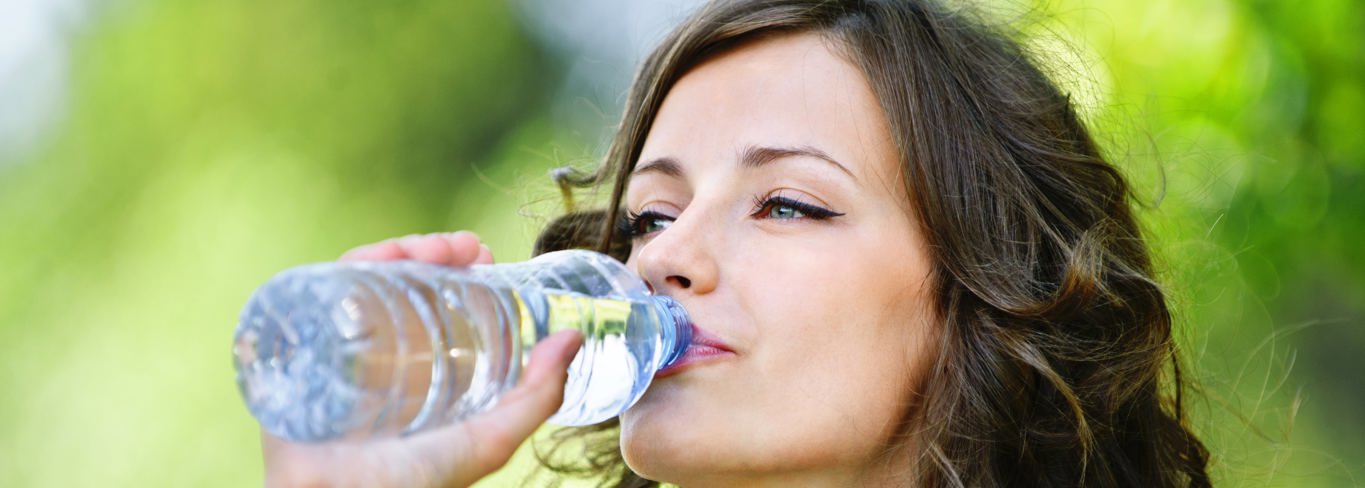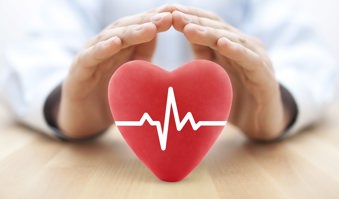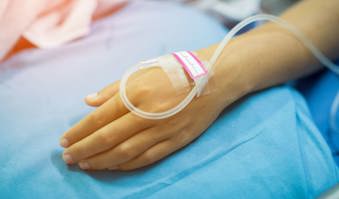How to Avoid Dehydration in the UAE: Causes, Symptoms and Tips
 13 Apr, 2023
13 Apr, 2023
Dehydration is a common occurrence in the hot climate of UAE. Read this article for tips to prevent your body from getting dehydrated from the heat.
Tips to Prevent Dehydration in Kids and Adults
Summer is the most prolonged season in the UAE, making it crucial to be hydrated during this weather to replenish the water lost due to heat. Because of the intense summer heat experienced in the UAE, people need to take extra care to ensure they are drinking enough water to replenish their body's water needs. In addition, the urge during summer to consume something cold like readymade juices and other aerated beverages ultimately cannot make up for the lack of water.
There is a common tendency among working individuals in the UAE to skip drinking water and eating meals on time due to busy work schedules. People often forget to consume water during the day because they are too busy working or preoccupied with other day-to-day tasks.
It is also mistakenly believed that drinking water is necessary only when you are thirsty. However, it is crucial to regularly consume water throughout the day at regular intervals.
Quick Read Section
- In the UAE, summer stretches from May to October, so staying hydrated with water is crucial to replenishing body fluids that are lost due to the heat & humidity.
- Depending on the symptoms you're experiencing, dehydration can be mild, moderate, or severe.
- Eating a healthy, balanced diet, keeping an eye out for dehydration symptoms, and hydrating yourself with water before and after physical activity are effective ways to prevent dehydration.
Keep reading for information on the warning symptoms of dehydration in children and adults as well as for tips to prevent it.
Dehydration in kids
We keep losing water throughout the course of the day. When you breathe, cry, sweat, or go to the bathroom, water evaporates and leaves the body.
However, in some situations, children lose more water than usual. Too much fluid loss can happen for a variety of reasons, such as fever, being outside in the heat, or overexertion.
Children are more prone to dehydration than adults. This is because they have smaller bodies and thus less water reserves than adults.
It's important not to treat dehydration lightly. With dehydration, the body is drained of the water and fluids it needs to function properly.
What causes dehydration in children?
Some kids experience dehydration because of inadequate water intake.
Chronic conditions like diabetes, bowel problems, exposure to hot weather, vomiting, increased sweating, and fever cause dehydration in toddlers.
Dehydration can occur abruptly or gradually over time. Toddlers who are ill should be carefully watched for signs of dehydration. It's not always easy to see the signs of dehydration, however, look out for these symptoms:
- Dry and chapped lips
- Lack of urine for more than eight hours
- Cold skin
- Sunken eyes
- Excessive fatigue
- Low energy levels
- Rapid breathing, and heart rate
- Drowsiness/ fainting spells
Can dehydration cause fever?
Fevers typically are an indication of the body fighting an infection or illness that causes an increase in the body's internal temperature. However, severe dehydration can also cause a rise in body temperature.
Dehydration prevents your body from maintaining a normal body temperature, causing hyperthermia and body chills. This puts you at greater risk as the higher your temperature, the greater the risk of dehydration.
How dehydration affects the body
Dehydration can be mild, moderate, or severe based on the symptoms you are facing.
- Mild Dehydration
You are mildly dehydrated when you lose 1-2% of your body’s water. Dry lips, fatigue, headache, dizziness, and excessive thirst are the symptoms of mild dehydration. Mild dehydration is often your body’s way of signaling you to drink enough water. While we can go days or even weeks without food, we cannot go very long, particularly in the heat, without water.
You can treat mild dehydration by consuming water or an electrolyte-containing drink. Just be careful to stay away from alcohol and caffeinated beverages like soda, tea, and coffee as these can exacerbate dehydration.
- Moderate Dehydration
Moderate dehydration can severely affect your kidney as you keep losing water from your body. Your kidneys aid in the removal of metabolic debris from your blood and urine and work to retain as much water as possible when you are parched. Because less water is needed to flush away waste, your urine becomes more concentrated as a result. Rapid heartbeat, a rise in body temperature, and decreased urination are all signs of moderate dehydration.
Stop what you're doing and give yourself some time to relax and calm off. Get fluids back into your body to treat mild dehydration. Drinking water too quickly can shock your system and make you throw up, so be careful to consume it slowly.
- Severe Dehydration
Your body starts to shut down more quickly, the more dehydrated you are. Severe dehydration leads to kidney failure and can eventually cause your brain, liver, and your heart to fail. Extreme dehydration prevents your kidneys from properly filtering your blood, which can result in uremic anemia or toxic blood. In severe circumstances, this could cause cardiac arrests.
Hydrate yourself if can consume fluids. Seek medical attention if you're dehydrated, feeling sick, throwing up, or unable to consume liquids.
Will dehydration cause high blood pressure?
Your body produces a substance called vasopressin when it is dehydrated. Vasopressin aids in water retention, which reduces water loss through urination. However, it also causes your blood arteries to tighten at the same time, raising your blood pressure in the process. When this condition continues, elevated blood pressure may set in.
How to prevent dehydration in adults?
Follow these tips to prevent yourself from getting dehydrated in the summer.
- Maintain a good fluid intake by consuming 6 to 8 glasses of water per day. Consult a dietitian to determine how much water you need to consume in a day.
- Consume a balanced diet. Speak to a doctor if you need assistance with your diet & exercise regimen.
- Look out for signs of dehydration. Take more fluids if you're vomiting, experiencing diarrhea, or have a fever.
- Refrain from consuming alcohol and caffeinated beverages, such as coffee, tea, chocolate milk, and soft drinks as they cause you to lose more water.
- Sip water before, during, and after physical exertion.
- Avoid eating salty foods after working out.
- When it's hot outside, find a cool spot to avoid direct exposure to the sun.
- Eat fruits and vegetables with high water content like cucumbers and watermelon during hot weathers.
What causes dehydration in adults?
These are some of the common causes of dehydration in adults:
- Aging-related changes, such as a decreased thirst or poor taste buds
- Excessive consumption of caffeine or alcohol
- Over-exertion while working out
- Too much exposure to the sun
- Loss of body fluids due to fever, infection, vomiting, or diarrhea.
- Restrictions on fluid intake due to medical conditions
Is dehydration in adults dangerous?
Water makes up about 60% of the human body, so staying hydrated is crucial for maintaining bodily processes. Dehydration can cause serious damage to your body organs if not addressed at an earlier stage. The organs, cells, and tissues of the body become damaged when too much water is lost, which can lead to complications such as:
- Heat damage: When you exercise hard and perspire a lot, you may develop heat injuries that can range in severity from mild heat cramps to severe exhaustion or even possibly fatal heatstroke if you don't drink enough fluids.
- Urinary Infections: Dehydration that lasts a long time or occurs frequently can lead to kidney stones, kidney failure, and UTIs.
- Seizures: Electrolytes, like potassium and sodium, aid in the transport of electrical impulses from one cell to another. Lack of water in the body causes the regular electrical signals to get jumbled, causing uncontrollable muscle contractions and loss of consciousness.
- Body Shocks: One of the most severe and occasionally fatal consequences of dehydration is the body going into shock from low blood volume, which is also known as hypovolemic shock. This happens due to a drop in blood pressure and a reduction in the quantity of oxygen in your body.
How to avoid dehydration in summer?
Take these precautions when you are outside in the sweltering UAE summer heat to prevent dehydration and sunburn.
- Be sure to drink water before leaving the house and always carry a bottle of water with you.
- Wear a cap or hat or carry an umbrella to protect yourself from the heat of the sun.
- Apply sunscreen on your face and other exposed areas to avoid sunburn.
- Try not to expose yourself to direct sunlight.
- Refrain from exercising and overexerting yourself in the heat.
- Take pauses to hydrate yourself frequently.
- When you get home from being outside in the hot weather, make sure to take a cold shower and drink more water.
The best way to avoid dehydration is prevention. And this can only be done by consuming enough water.
It's a common misconception that eight glasses should be consumed daily. For some people, that's too much; for others, it's not enough. Your activity level, body size, and whether you are pregnant, or nursing will all influence the appropriate quantity.
So instead, make it a point to stay hydrated throughout the day and pay attention to your body's thirst signals. If you’re feeling thirsty, your body will always let you know.
With the help of health insurance plans in UAE, you can get free consultations to see if there is any dehydration treatment near you. Reach out to your insurance broker or provider to enquire if the hospital network of your current health insurance policy offers dehydration treatment. Speak to a dietician if you find yourself getting dehydrated more often. Consult dieticians who will help suggest treatment for your dehydration and recommend diet schedules and remedies to rehydrate yourself quickly. Consider getting treatment if you’re unable to consume water or feeling dizziness due to dehydration.
Having health insurance coverage helps protect you and your loved ones against unexpected medical expenses. When it comes to purchasing health insurance, our team of insurance experts will guide you through every detail and ensure that our insurance quotes match your requirements.
Contact us today for all your health insurance needs!

Elevate Your Health Coverage to the Next Level!
Congratulations on taking the first step towards securing your health!
Now, imagine having even greater peace of mind with our Comprehensive Health Insurance plan.
Enjoy enhanced coverage, wider scope, and ultimate protection for you and your loved ones.
Need more help?
 Buy Now
Buy Now Online Plans
Online Plans



